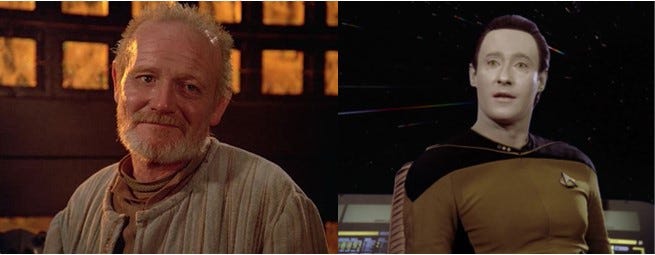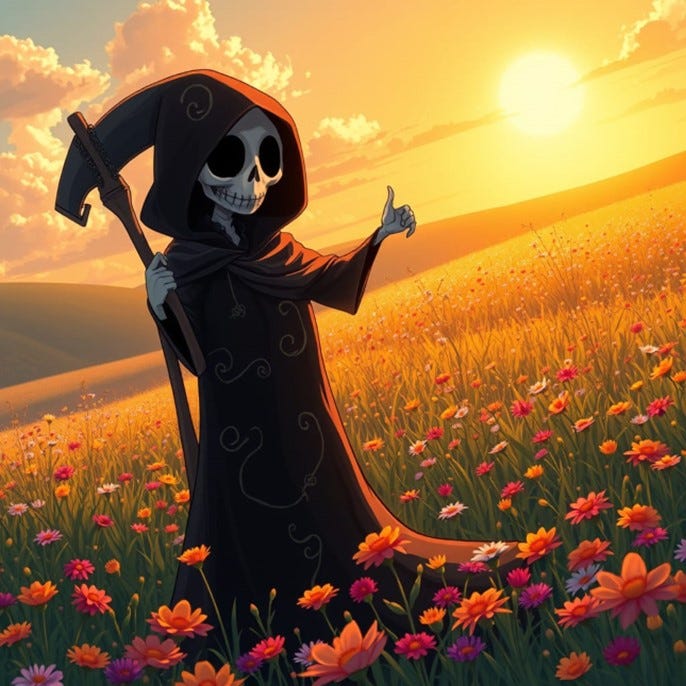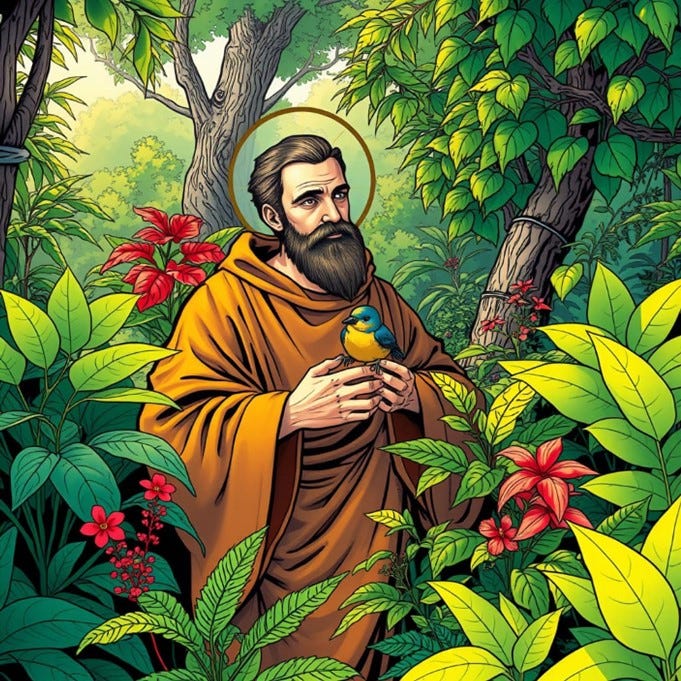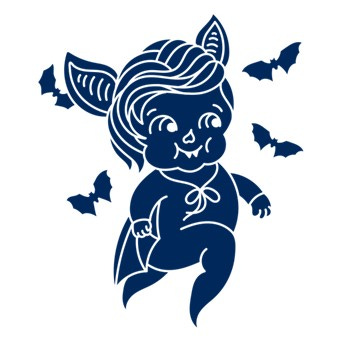Among various incarnations in the Star Trek canon, I have long been a fan of Star Trek: The Next Generation. It aired at the end of the Cold War, with the Federation and the Klingon Empire having made peace. There is an episode entitled “The Schizoid Man.” It features a brilliant, egotistical scientist, Dr. Ira Graves, who has a terminal illness and believes he’s found a way to cheat death. He’s been working on ways to implant the human consciousness into a computer mind. Besides not wanting to die, part of Graves’ motivation is his helpless longing for his lovely female assistant, Kareen, a woman young enough to be his granddaughter.
[Dr. Ira Graves and his temporary dwelling place, Data]
Concerned at his failing health, she sends out a distress signal, to which the Enterprise responds. During the course of their visit to the facility, Dr. Graves has a private meeting with Data, the android member of the crew. Data returns to the ship, reporting that Dr. Graves has died. The truth is that Graves transferred himself into Data before his own body ceased functioning. He confesses to Kareen that he now lives within Data’s body, and he wants to build her an android body, so that they can be together without any fear of death.
I won’t focus on how they’re able to get Graves out of Data. I want us to consider Kareen’s reaction to Graves. She doesn’t exactly jump for joy as she listens to his plan. Kareen is horrified at the thought of her consciousness—her soul, if you will—being put into the body of an android. The prospect of a seemingly indestructible body and apparent immortality does not appeal to her!
However, it’s that very prospect which drives many people today. Not everyone is pining to have an Iron Man anatomy, but to have a lengthy life extension would be more than welcome. Some folks yearn for, and are actively working on, bionic additions and replacements for the human body. Transhumanism, in its various appearances and forms, might encapsulate the efforts to transcend our present mortal existence.
And then there’s virtual reality, where life is experienced in a non-corporeal fashion. (I think “non-corporeal” is an appropriate term!)
The forty days of Lent are patterned after the forty days of Jesus’ temptation in the wilderness. We are currently well into the Lenten season. Aside from the focus on repentance and renewal, we are indeed reminded of our mortality. That is certainly the message of Ash Wednesday. We will die. Ashes to ashes, dust to dust. For many of us, in our day-to-day lives, the thought of our death is some abstract matter. Our culture does what it can to distract us. It presents a challenge to market products to those who are reminded of their final destination.
I am reminded of one of Carlos Castaneda’s books (Journey to Ixtlan). It should be added that his books are admittedly of dubious veracity. His books on the teachings of Don Juan Matus, a Yaqui Indian in Mexico, have inspired many in various new age circles. But for me, the value of his work is found more in its poetic beauty—which has a truth of its own. His writings are hardly Christian, but I find some of his comments on death to be noteworthy.
[the Grim Reaper, our helpful companion!]
Quoting his (alleged) mentor, Don Juan, Castaneda writes, “Death is our eternal companion,” and he even locates it: “always to our left, at an arm’s length… How can anyone feel so important when we know that death is stalking us?” (33-34) His goal isn’t to instill fear, but rather humility and wisdom.
“The thing to do when you’re impatient,” he continues, “is to turn to your left and ask advice from your death. An immense amount of pettiness is dropped if your death makes a gesture to you, or if you catch a glimpse of it, or if you just have the feeling that your companion is there watching you.”
Castaneda admits his deep sense of offense—and of totally being freaked out! Don Juan responds in a casual way, “One of us here has to ask death’s advice and drop the cursed pettiness that belongs to [those] that live their lives as if death will never tap them.” (35)
An immense amount of pettiness. An immense amount of cursed pettiness.
There certainly is no effort to avoid the subject of death. Quite the contrary. Death is valued as a companion, a fellow traveler. Even more, death is seen as a fount of wisdom. Though honestly, I think that might be pushing it a bit too far! Still, death plays an important role in the scriptures and in songs of the church.
The hymn “All Creatures of our God and King” is a beloved favorite. We know how the first verse goes (with allowances for minor variations):
“All creatures of our God and King, / Lift up your voice and let us sing;
Alleluia! Alleluia!
Bright burning sun with golden beam, / Pale silver moon with softer gleam,
O praise him! O praise him! / Alleluia! Alleluia! Alleluia!”
It is a glorious affirmation of all creation. There is exultant praise for our Creator. However, there is a later verse which rarely is sung:
“And you, most kind and gentle death, / Waiting to hush our final breath,
O praise him! Alleluia!
You lead back home the child of God, / Where Christ our Lord the way has trod:
O praise him! O praise him! / Alleluia! Alleluia! Alleluia!”
The hymn was written by William Henry Draper, who in turn based his work on the poem of St. Francis of Assisi. We hear death being affirmed and even praised for its role in creation.
“The grass withers; the flower fades, when the breath of the Lord blows upon it; surely the people are grass. The grass withers; the flower fades, but the word of our God will stand forever” (Isaiah 40:7-8).
We are but grass blown by the wind.
We suffer many deaths during life. One such death is loss of identity, indeed, a loss of personhood. I can speak of that for myself. My wife Banu has spoken of similar feelings.
From the time we left our most recent church until returning to New York, roughly ten months elapsed. We have lived here since last September. There were times when we lived in Tennessee, but especially in Florida, where I could feel my identity in flux. I was no longer what I had been, but I had yet to arrive at what I could (or would) be.
There is another way to defy death. The Heaven’s Gate cult came up with one. In 1997, the Hale-Bopp Comet arrived, and Marshall Applewhite and his crew believed there was a starship accompanying it. By committing suicide, vacating their “vehicles” (as they called their bodies), they would be able to join the occupants of the space craft.
By the way, the cult members were rabid fans of Star Trek. In fact, as they anticipated their voyage to the comet, they wore uniforms with patches bearing the insignia “Heaven’s Gate Away Team,” modeled after an away team visiting a planet. (I wonder how they felt about the episode “The Schizoid Man”?)
Getting back to a fundamental point, what value is there in being reminded of our mortality? If we somehow develop the ability to have an indefinite lifespan, what if anything would we lose? What would be the consequences of inhabiting a nearly unbreakable body?
These are questions that have been long debated. Would life become monotonous? Think of endless consumption of resources. Would life lose its meaning? Other questions could be posed. Would our ability to treasure each other be diminished?
On a lighter note, how about procrastination? Don’t worry about putting it off until tomorrow—put it off until the next decade!
Death indeed is a gift. It leads “back home the child of God, where Christ our Lord the way has trod.”
Failing that, we might as well be vampires!
(Here is a link to Wellspring Center, our spiritual formation ministry.)






I always appreciate your cultural references and how you relate it all to God. I enjoy going through life knowing that it all connects back to him somehow. Also going to remember the invitation to allow my imminent death to remind me to drop the pettiness.